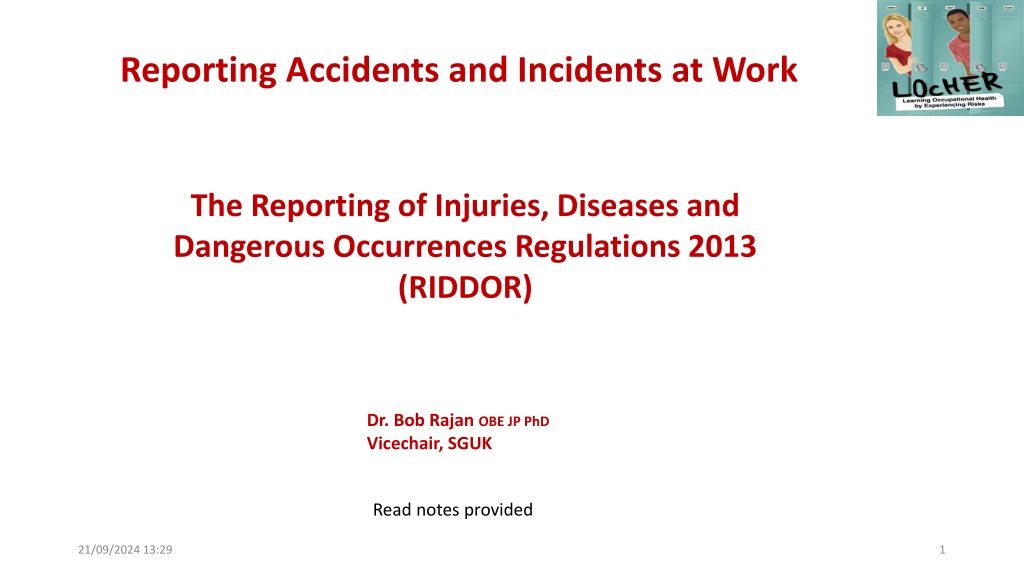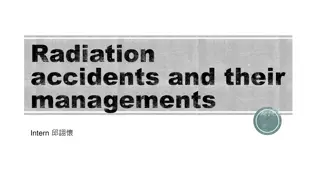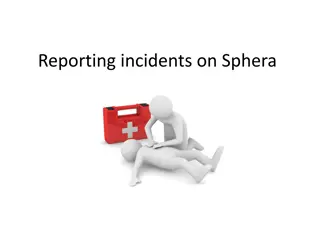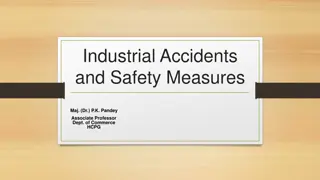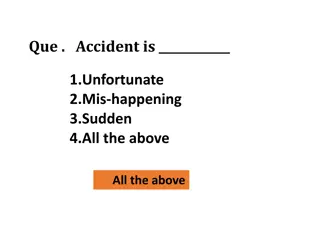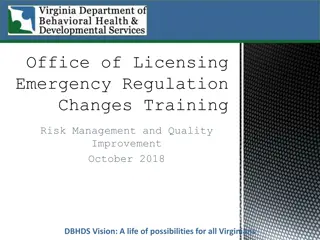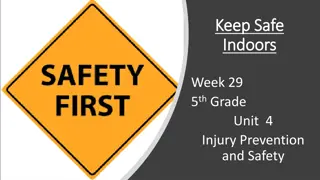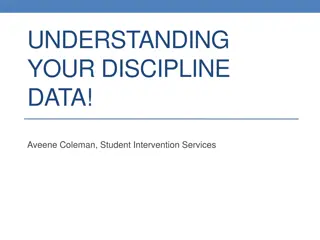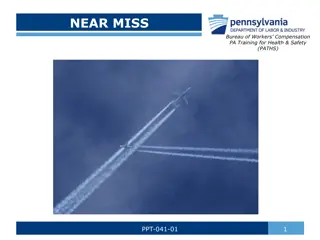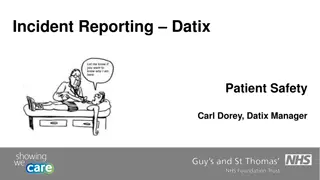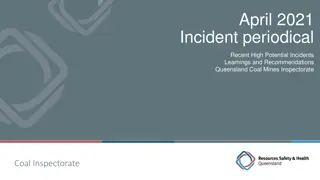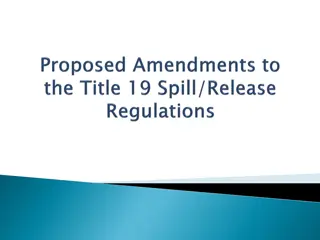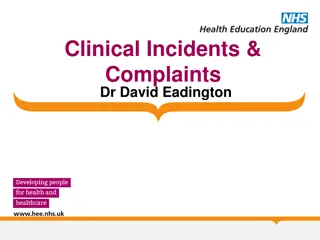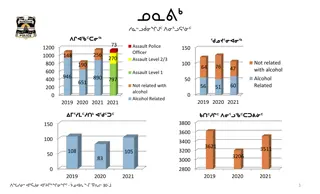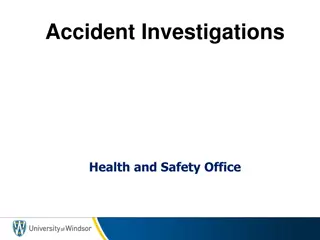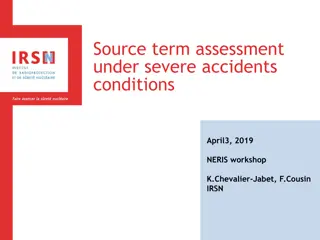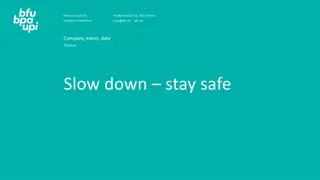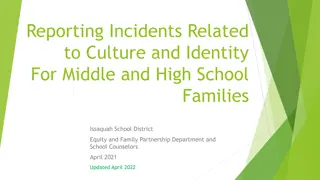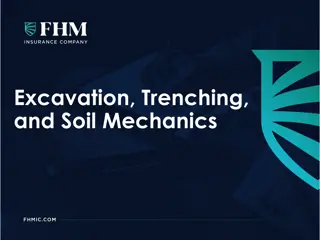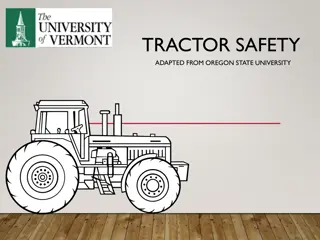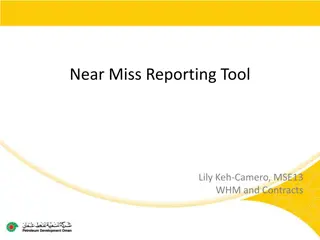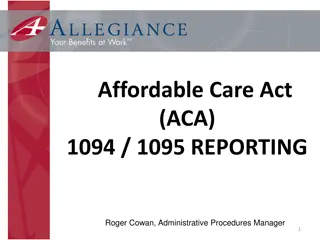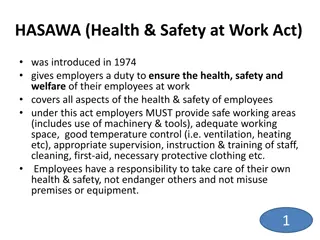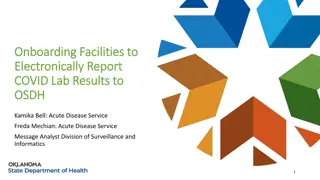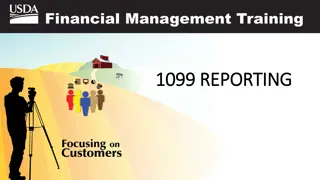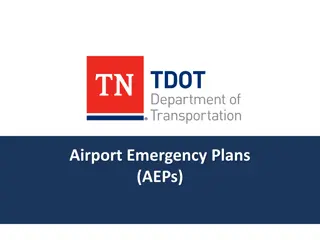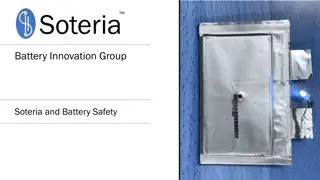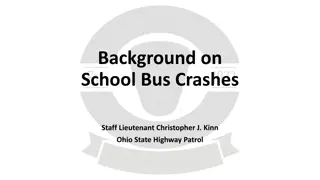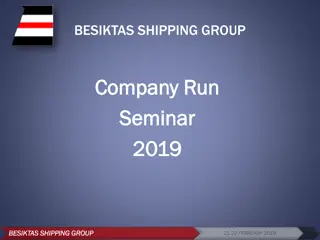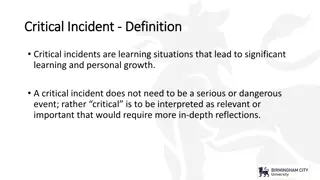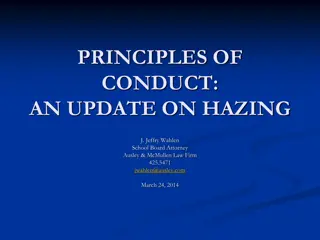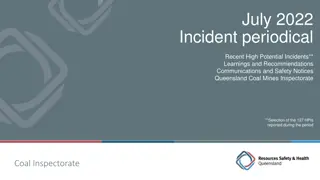Reporting Accidents and Incidents at Work: Understanding RIDDOR Regulations 2013
The Reporting of Injuries, Diseases, and Dangerous Occurrences Regulations 2013 (RIDDOR) outlines the legal requirements for reporting work-related accidents and incidents. It specifies what must be reported, who to report to, types of reportable accidents, recording requirements, and how to report incidents. The purpose is to help enforcing authorities identify risks, investigate incidents, and provide advice to avoid work-related harm. Compliance with RIDDOR is essential in promoting workplace safety and preventing accidents and injuries.
- RIDDOR Regulations
- Work Incidents Reporting
- Workplace Safety
- Enforcing Authorities
- Occupational Health
Download Presentation

Please find below an Image/Link to download the presentation.
The content on the website is provided AS IS for your information and personal use only. It may not be sold, licensed, or shared on other websites without obtaining consent from the author. Download presentation by click this link. If you encounter any issues during the download, it is possible that the publisher has removed the file from their server.
E N D
Presentation Transcript
Reporting Accidents and Incidents at Work The Reporting of Injuries, Diseases and Dangerous Occurrences Regulations 2013 (RIDDOR) Dr. Bob Rajan OBE JP PhD Vicechair, SGUK Read notes provided 21/09/2024 13:29 1
Why Report Reporting certain work-incidents is a legal requirement Who to report? The relevant enforcing authorities (EAs) Inform what? Deaths specified injuries, occupational diseases and dangerous occurrences What is the Purpose? EAs can identify: - where and how risks arise, and - whether they need to be investigated Allows the EAs to target their work and provide advice - how to avoid work-related deaths, injuries, ill health and accidental loss 21/09/2024 13:29 2
What must be reported? Work-Related Reportable Accidents Acts of non-consensual violence to people at work The accident is work-related and It results in an injury of a type which is reportable 21/09/2024 13:29 3
Types of Reportable Accidents Types of Reportable Accidents Deaths at work Specified injuries to workers Over- 7-day injuries to workers Injuries to non-workers Reportable occupational diseases Reportable dangerous occurrences Reportable gas incidents 21/09/2024 13:29 4
Recording Requirements Must keep a record of: Any accident, occupational disease or dangerous occurrence which requires reporting under RIDDOR Any other occupational accident causing injuries that result in a worker being away from work or incapacitated for more than three consecutive 21/09/2024 13:29 5
How to Report How to Report Telephone: fatal and specified injuries only - call the Incident Contact Centre on 0845 300 9923 (working hours) Online: at www.hse.gov.uk/riddor and complete the appropriate online report form Out of hours: at www.hse.gov.uk/contact/outofhours.htm Work-related death A serious accident and evidence must be collected before being lost A major incident that will require a public statement 21/09/2024 13:29 6
Reporting Accidents and Incidents at Work The Reporting of Injuries, Diseases and Dangerous Occurrences Regulations 2013 (RIDDOR) The duty falls to the employer and self-employed The list of reportable changes periodically, so for an Up-to-Date info visit HSE website and look for RIDDOR 21/09/2024 13:29 7
Note to Lecturers For SGUK certificate Word template please contact contact@safetygroupsuk.org.uk 21/09/2024 8
